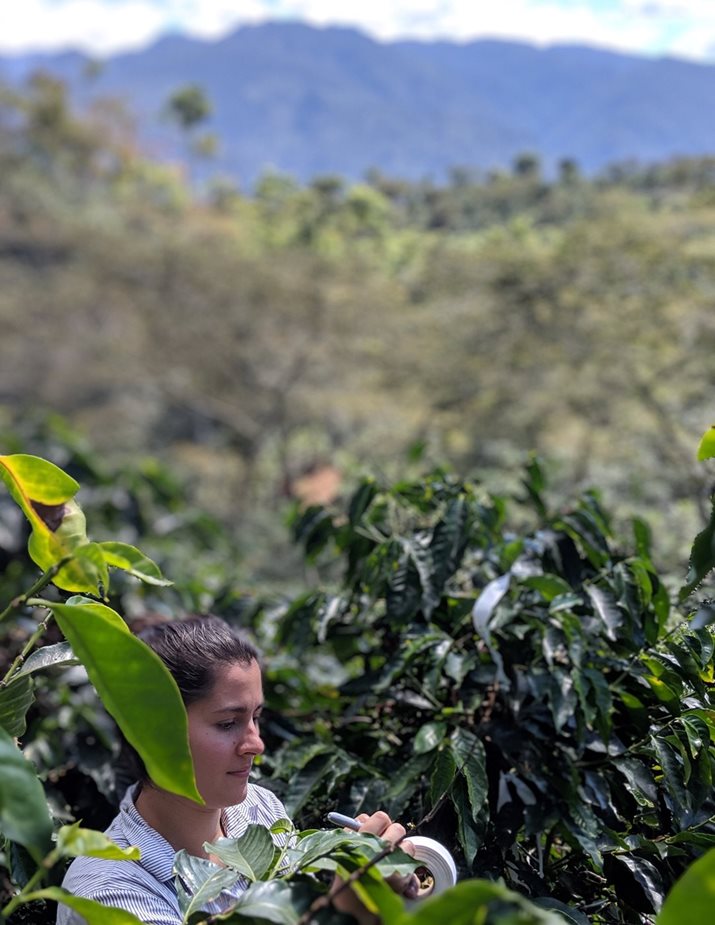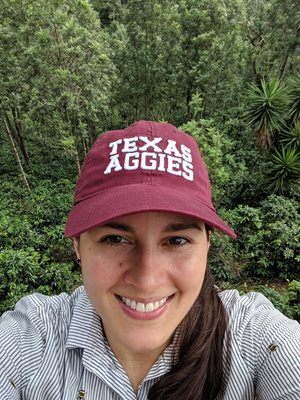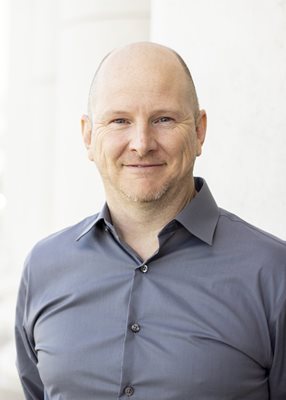News
Doctoral Student Conducts International Relations through Coffee
In early 2021, pandemic-permitting, Horticultural Sciences doctoral student Sarah Brinkley will travel to Colombia on a Boren Fellowship to conduct research and advance causes about which she is passionate.
By Rob Dixon, Texas A&M Office of Graduate and Professional Studies
.jpg)
In the not-too-distant past, coffee was prized merely for its caffeine. Enjoyed as a fuel to kickstart our mornings or sustain us through afternoons, taste was secondary. In the 1980s, a so-called “second wave” in the rise of coffee’s popularity gave us the quick-serve giant, Starbucks.
Over the last several decades, a third wave has arrived, bringing with it a culture of more discriminating coffee drinkers. Third wave coffee consumers are still after the caffeine, but they’re also attuned to features such as region of origin, roasting processes and specifications, and brewing variations. To see how far coffee culture has come, look no further than the kaleidoscopic “Coffee Taster’s Flavor Wheel,” created in the lab of Texas A&M’s sensory scientist Dr. Rhonda Miller, which helps aficionados find the right language to describe or order the perfect brew.
Clearly, coffee has become more than just fuel.
An Opportunity Brewing
As coffee tastes became more sophisticated, third-year Horticultural Sciences (HRSC) Ph.D. student Sarah Brinkley identified an opportunity.
“The rise in appreciation of coffee has made people more curious about where it comes from,” Brinkley says. “And global connectivity enables us to learn more about the farmers, how the coffee is grown, and what makes each coffee distinct. We can know the story behind what we’re consuming.”
Brinkley conducts research on how soil health-promoting practices—such as traditional vs organic growing methods—affect yield and taste. Beyond her research, in 2018 Brinkley co-led a service-learning study abroad trip to Guatemala to teach undergraduate students about cultivation, processing, culture, and history of coffee in Guatemala. Her passion for improving the welfare of farmers while promoting sustainable and responsible agriculture has made her a powerful advocate and landed her positions as a student researcher at Texas A&M’s Vegetable and Fruit Improvement Center (VFIC) Center and the Center for Coffee Research and Education (Coffee Center), part of the Norman Borlaug Institute for International Agriculture.
As a graduate student at A&M and as a student researcher in these various centers and institutes, Brinkley has worked alongside some of the world’s preeminent scholars in her field. “I’ve been fortunate to get to work with mentors like Dr. Leonardo Lombardini, my co-chair in the Horticulture department and founding director of the Coffee Center [Lombardini is now Department Head of Horticulture at the University of Georgia]; Dr. Elsa Murano, Director of the Borlaug Institute; Dr. Rhonda Miller; and Dr. Andrew Margenot, HRSC graduate faculty. They have helped me grow as a researcher and deepened my interest in the complex relationship between coffee growers and coffee drinkers.” Ultimately, she credits these relationships and her research experiences with helping her win the Boren Fellowship, which provides federally-funded awards to support students in language and cultural immersion, as well as research that could bolster national security.
That’s right. Consumer choices surrounding coffee have national security and international relations implications—and more. Coffee is also intertwined with broader issues such as international development, sustainability, and climate change.
“The way we think about coffee in the larger context of all these interconnected issues is to start by focusing on producers and consumers,” Brinkley explains. “The history of the relationship between consuming and producing countries has been imperial and exploitative. While some entities have profited, relations between countries with this kind of history is strained.”
While there have been considerable improvements for farmers, Brinkley says there are still producers working in conflict zones and cases of forced labor. Moreover, even where oppressive conditions are no longer prevalent, there are some scars left over.
Brinkley says the key to healing these scars while making further progress for farmers and supporting sustainable growing practices is to change how we perceive coffee. “Coffee is still sold as a commodity, like sugar, oil, or grain,” she explains. “If we can get even more consumers to embrace it as a luxury product like wine, a fairer share of profits would end up back in the hands of the coffee growers.”
Colombia: A Vital Location for Brinkley’s Work
Colombia is one of the world’s most biodiverse countries and trails only Brazil in South American rainforest coverage. Colombia’s rainforests are especially vulnerable right now.
“The 2016 Peace Agreement—supported by the U.S.—between the Colombian government and the Revolutionary Armed Forces of Colombia (FARC) opened up land for development that was previously inaccessible due to FARC occupation,” Brinkley says. “Without tools to inform responsible land use, there is a real threat of unrestrained deforestation. Already, some coffee farmers are clearing land for raising cattle, which emit greenhouse gases. Seamlessly integrating coffee and forest conservation then becomes critical not just for Colombia, but also for U.S. and global climate policy.”
Colombia is also the world’s largest producer of coca, the raw ingredient for cocaine. As with Colombian coffee, the U.S. is the largest consumer of Colombian cocaine. Reducing cocaine imports to the U.S. is a matter of national security and national health.
“The idea is that if coffee were more profitable to grow, Colombian farmers wouldn’t have to resort to growing coca, or deforestation to raise cattle,” Brinkley adds.
Brinkley believes that improving the welfare of local coffee farmers to reduce coca farming and promoting the kind of agricultural practices that preserves rainforests will take a concerted effort.
“First, we have to educate consumers so that their buying practices pressure big commodity companies to be more responsible in their sourcing of products. Then, agricultural commodities companies have to commit to ethical sourcing products and transparency in their supply chains. Lastly, policy makers will have to play a big role, too, continuing to generously fund organizations that enable researchers to discover and then educate people about ways to make agriculture more sustainable and profits more equitable. All of these entities working together is essential.”
Cooperation is what Brinkley is hoping to foster while she’s in Colombia and after she returns to the U.S. to finish her Ph.D. program. After graduating, she hopes to work for the U.S. Department of Agriculture or U.S. Agency for International Development.
A Proud Aggie
.jpg)
“I am so grateful for the opportunities A&M has provided me,” she says. “I couldn’t have done the kind of work I’ve done or been awarded a Boren Fellowship without the help and support of my supervisors and fellow graduate students who’ve both inspired me and helped me through the challenges of grad school. The Office of Graduate and Professional Studies has been a great resource in helping me find funding opportunities like the Boren. The Jordan Institute for International Awareness has been instrumental in enabling me conduct research abroad and has helped me feel like a part of an international community based here at A&M. I’ve been able to conduct research in Honduras and El Salvador and to present my work in Guatemala.”
“That’s what I really love about A&M: our global focus. It’s part of the culture here to examine how our actions in Texas and the U.S. have ripple effects around the world. Just like with coffee, if you look closely enough, what you find is how interconnected we all are.”
Media contact:
Rob Dixon, Texas A&M University Office of Graduate and Professional Studies, rdixon@tamu.edu.
